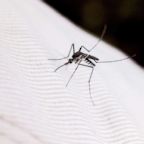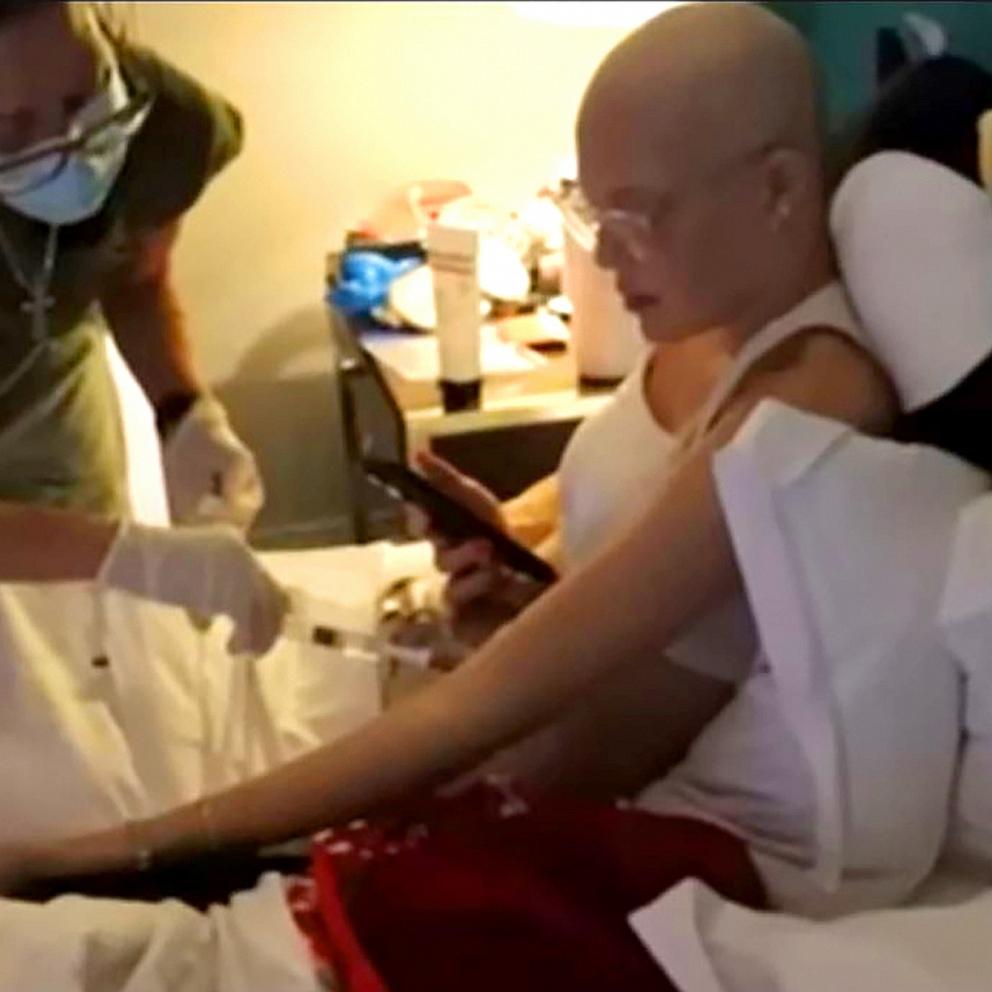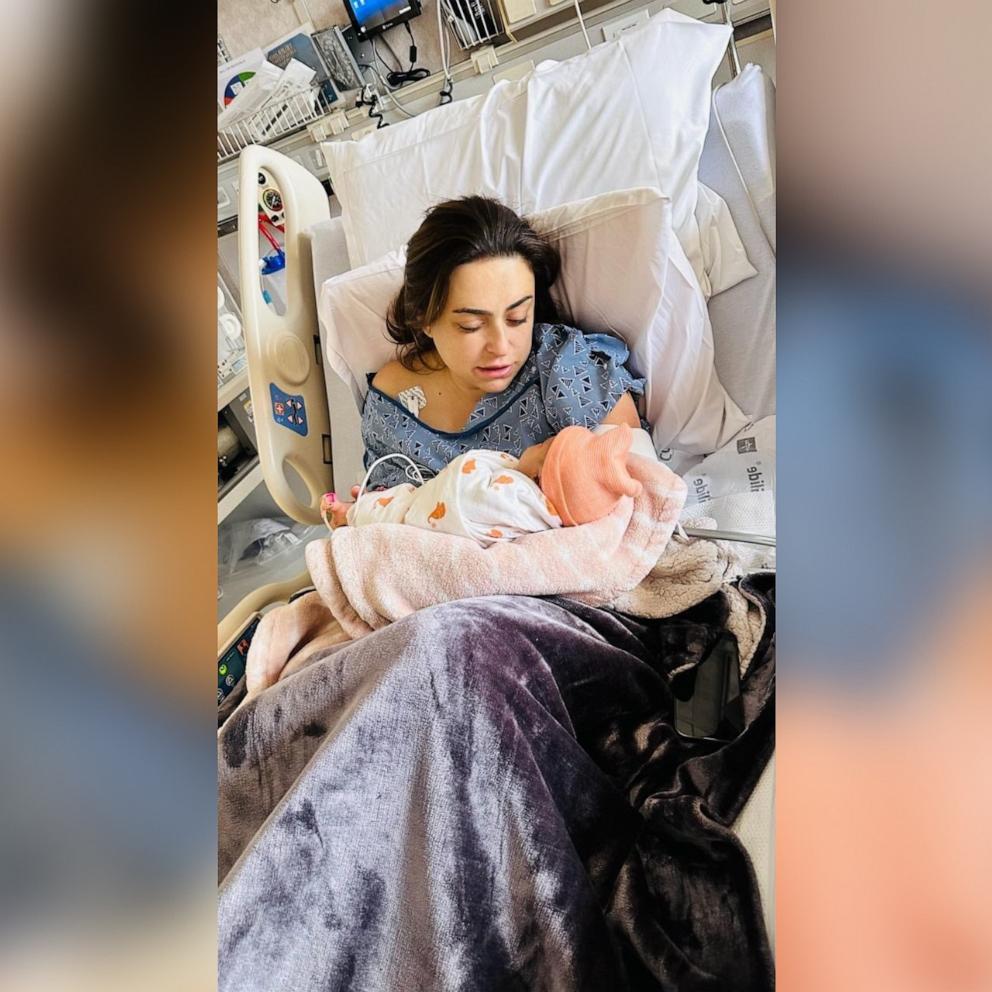Mom shares warning after 3-year-old son nearly dies from tick bite
A Pennsylvania mom is sharing details of her son's near-death experience to raise awareness of Powassan virus disease, a tick-borne illness.
Jamie Simoson told "Good Morning America" that her 3-year-old son Jonny was swimming in June when she noticed a tick on his shoulder, which she said she quickly removed.
"It was the tiniest tick," said Simoson. "I, you know, grabbed it with a little pair of tweezers. It came right off."
Two weeks after removing the tick from her son, Simoson said she received a phone call from Jonny's day care providers that he had a headache and was "not himself."
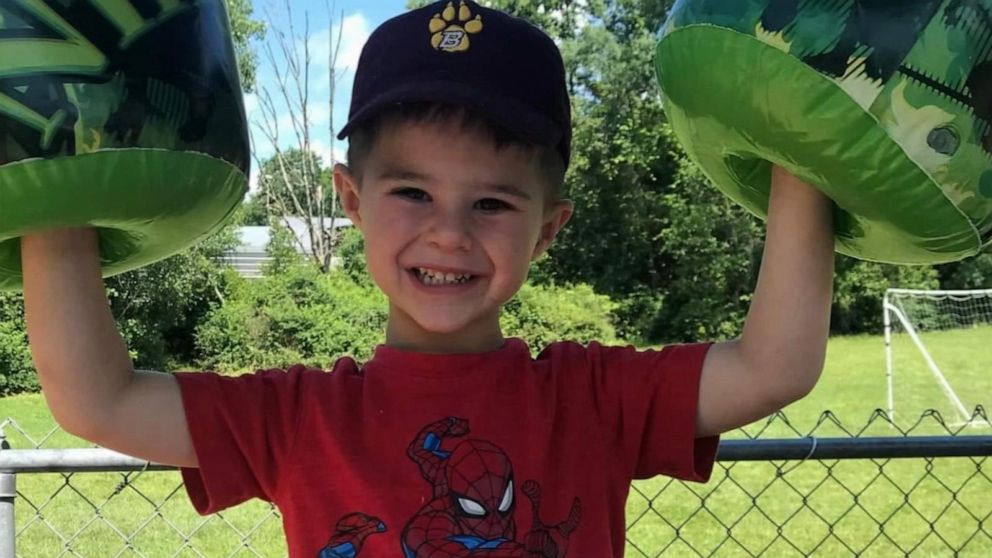
Within hours, Simoson said Jonny developed high fevers and became severely fatigued, sleeping all day and night and losing some speech recognition.
"It was so hard to watch," said Simoson. "This is the little boy who's been attached to me since the day he was born, and he didn't even want to be held. It was just heartbreaking."
Jonny was hospitalized, and doctors discovered swelling in his brain. He underwent a four-hour infusion of antivirals and antibiotics, which helped him improve quickly, according to Simoson.
Once he was discharged from the hospital, Simoson said doctors diagnosed her son with Powassan virus disease, a tick-borne illness that causes an infection of the brain.
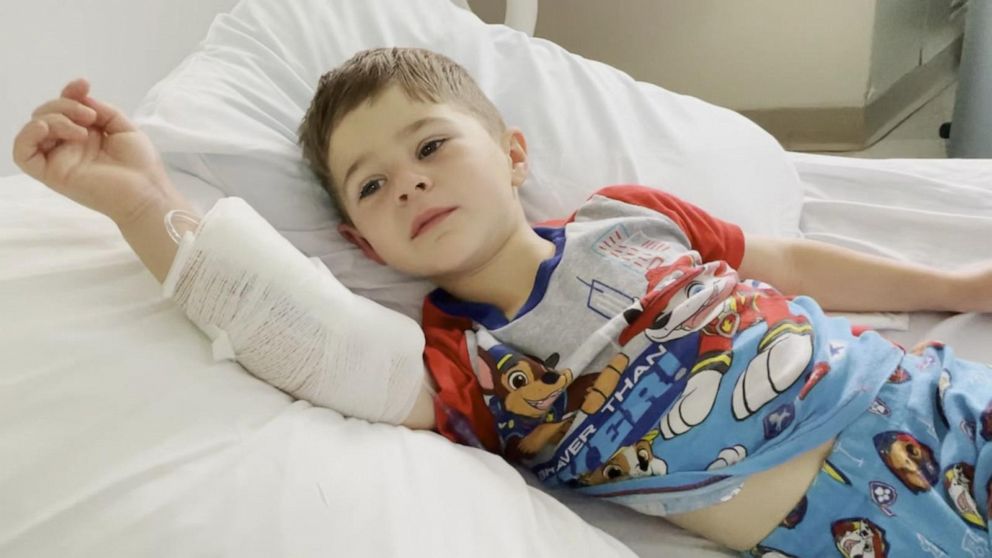
The virus, which is spread to people by infected ticks, is rare. However, cases have been on the rise in recent years, with most occurring in the northeastern and the Great Lakes regions of the U.S., according to the Centers for Disease Control and Prevention.
Symptoms for Powassan virus, according to the CDC, may not develop until as long as one week to one month after the tick bite. Typical initial symptoms of the virus include fever, headache, vomiting and weakness.
If the virus progresses to severe, it can infect the brain or the membranes around the brain and spinal cord, causing confusion, loss of coordination, difficulty speaking and seizures, according to the CDC.
"People, when that happens, can develop altered mental status, meaning that they may be more sleepy than usual, have difficulty waking up, they may experience seizures, maybe some unusual behaviors, severe headaches," Dr. Robert Posada, a pediatric infectious disease specialist at Mount Sinai Kravis Children's Hospital, who was not involved in Jonny's care, told "GMA."
Around 1 in 10 people who develop severe disease from Powassan virus die, according to the CDC. Among those who survive, around half will have long-term health problems like memory issues, recurring headaches and loss of muscle mass and strength.
While there are treatments to support people with Powassan virus, there is no medication specifically used to treat this illness.
Simoson said her son Jonny is experiencing left-side weakness and some remaining cognitive delays, but she said she and doctors are hopeful he will make a full recovery.
There is no vaccine for Powassan virus, so the CDC says the best way to protect against the virus is to protect yourself, your pets and your home from ticks, which typically live in grassy, brushy, or wooded areas.
Experts also say early detection is key, so to seek medical treatment immediately if symptoms of Powassan virus disease are present.

